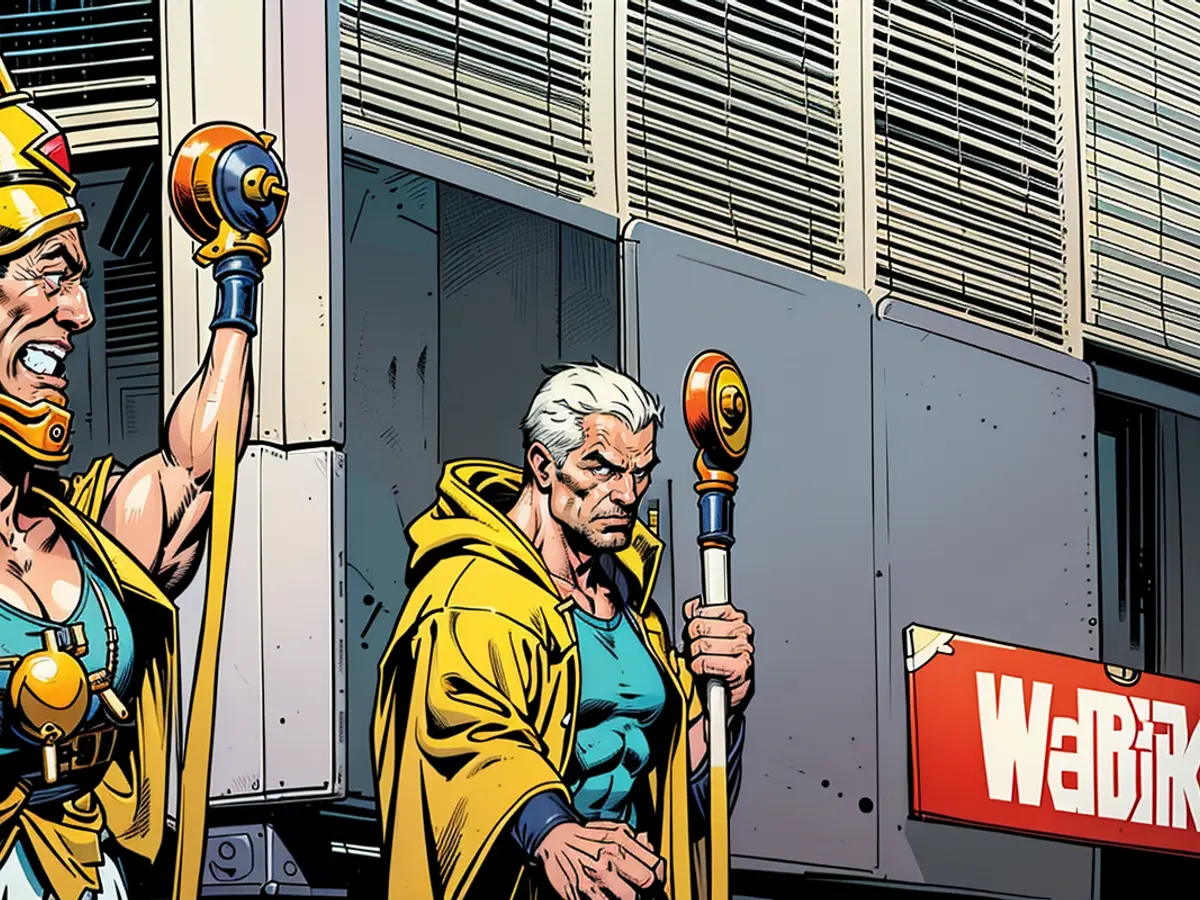The Ascension and Decline of the Immoral Literary Empire of the Catholic Church
Recently, the remaining branches of the German bookstore chain Weltbild are closing down. Previously, a part of a billion-dollar corporation, it became such a source of embarrassment for its owner, the Catholic Church, that they chose to dispose of it.
The Catholic Church, through Pope Benedict XVI, issued a demand in 2011 for the German bishops to immediately stop distributing erotic or pornographic content, particularly online. This demand applies to Weltbild, which at the time was the second-largest bookstore in the country with over 400 branches and a leading mail-order and internet provider in the industry. The shareholders of the company include the German bishops' conference, several individual bishops, and the Catholic military chaplaincy.
The shareholders were embarrassed when it was reported in the trade magazine "Buchreport" that a search for the keyword "erotica" yielded as many as 2500 hits in the Weltbild offer. Attempts to reconcile this modern entrepreneurship with the value system of Benedict and other conservative church representatives failed. Efforts to sell the corporation also proved unsuccessful. It was not until Weltbild filed for bankruptcy in 2014 that the bishops were finally able to rid themselves of their problematic daughter company. A new owner then took over a portion of the branches and online trade, which were subsequently wound down after another insolvency.
The Beginnings
The corporation was founded in 1948 as Winfried-Werk in Augsburg. At first, the publisher published a single magazine called "Mann in der Zeit" with the participation of the Catholic Men's Association. The company later renamed itself "Weltbild" and this name became synonymous with the entire company as it grew into a corporation. The expansion began in earnest after 1975, when the Dutchman Carel Halff took over management. When Halff took over, the strictly Catholic publisher and book mail order, which had since grown, generated 600,000 marks per year. When Halff left the company 40 years later, the annual turnover had grown to 1.6 billion euros.
Halff had built a nearly unmanageable conglomerate through acquisitions, participations, and cooperations. In addition to books and magazines, tools, garden supplies, and baby clothes were also sold online and in brick-and-mortar stores. Brands such as Tausendkind, Joker, and buecher.de belonged to the group. The publisher also acquired several subsidiary companies. The corporation expanded to Poland, the Netherlands, and Russia. Many of these activities were partnerships, such as with the bookseller Hugendubel, the publishing group Holtzbrinck, Burda, and Deutsche Telekom.
Lack of "focus" on a core brand was later cited as one of the reasons for Weltbild's decline. This began with the first difficulties in the 2008 financial crisis. At the same time, Amazon was emerging as an increasingly powerful competitor. While business was declining, criticism from the church about their own company was growing louder. "It's not right that we make money from it during the week and preach against it on Sundays," said Cologne cardinal Joachim Meisner, for example. Action was not taken in response to this displeasure until the Pope intervened personally.
Removing all problematic titles from the Weltbild offering proved impractical. On the one hand, revenue generators like Charlotte Roche's "Feuchtgebiete" or the US bestseller "Fifty Shades of Grey" could not be dispensed with at this time, on the other hand, these were part of the Weltbild program, such as online-distributed magazines and e-books, partnerships with secular companies, which also wanted to continue to profit from the sale of erotic titles. The bishops wanted to get rid of the corporate group, whose financial difficulties were simultaneously increasing. A suitable buyer could not be found, and Weltbild was to be converted into an independent foundation.
However, before this plan could be implemented, Weltbild had to file for insolvency at the beginning of 2014. Although the bishops were now rid of their problematic company, they could not shake off the criticism. The works council and trade unions accused the clerics of having abandoned their responsibility towards the employees by "pulling the plug" on the unwanted company. The decision not to provide the additional capital required for restructuring, amounting to 120 million euros, was justified by the then Archbishop of Munich with his "responsibility towards the church tax payers".
For a large part of the corporate group and the more than 6000 employees, this meant the end. Some still-profitable branches in Germany, Austria, and Switzerland, as well as the online trade, were taken over by the service provider Droege. The Weltbild brand remained for another ten years, until the new owner also gave up the fight against the retail crisis and Amazon.
In the course of the second insolvency, the remaining remnants of the former publishing and book trade giant are currently being wound down. The online trade is no longer accessible. In these days, the very last Weltbild deliveries should reach the customers. Some branches are still holding clearance sales - then the Weltbild brand will have disappeared from German city centers. The last around 440 employees are to receive their notice of termination in September. A "permanent and sustainable continuation of operations" is not possible, it is said from the management. "Massive cost increases" and intensified competition from "new aggressive providers" are given as reasons for the final demise.
The Catholic Church faced criticism from within, as Cardinal Joachim Meisner expressed his discomfort with the situation, stating, "It's not right that we make money from it during the week and preach against it on Sundays." Despite these issues, finding a buyer for Weltbild proved challenging due to its diverse business portfolio and financial difficulties.
The remaining branches of the German bookstore chain Weltbild, despite attempts at restructure and partnerships, are currently facing closure due to "massive cost increases" and intensified competition from "new aggressive providers."








